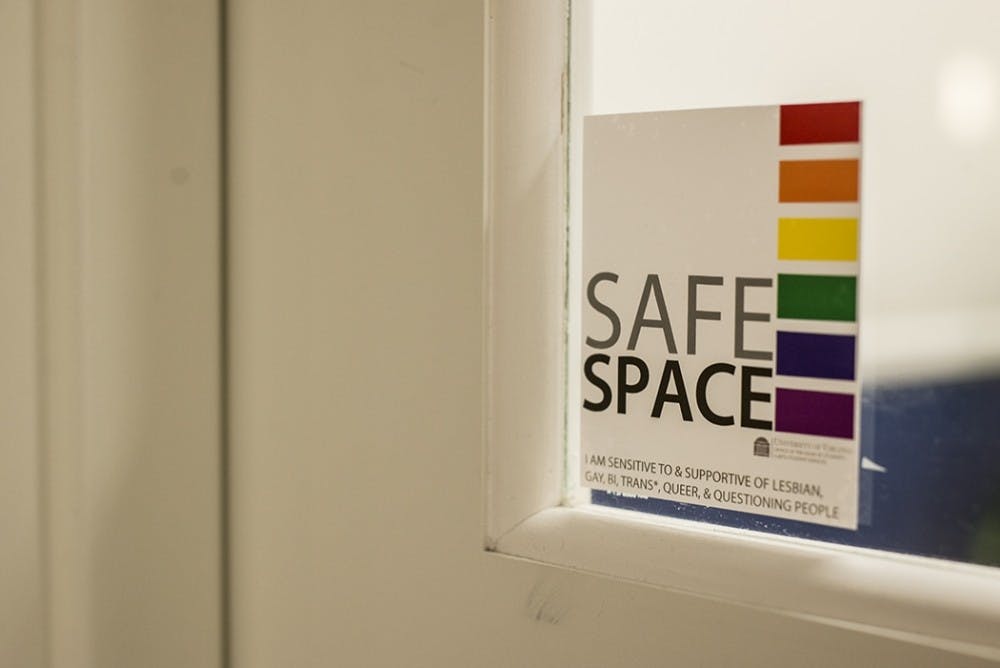On Sept. 20, The Cavalier Daily published my column highlighting the prevalence of liberal anti-intellectualism and its detrimental effects on the climates of discourse on college campuses. The deterioration of discourse at colleges and universities is evident, and unfortunately has spread to our University. One of the most significant factors contributing to such decay is the presence of safe spaces at colleges and universities and the attitudes that endorse them. A “safe space” is defined as “a place intended to be free of bias, conflict, criticism, or potentially threatening actions, ideas, or conversations.” They originally existed to provide shelters against racism, sexism and trauma, but they have since evolved to encompass intellectual discourse in general. Such spaces are antithetical to the purpose of attending college, and their existence does a disservice to students by encouraging them to retreat from confrontation instead of embracing it. The University should follow the University of Chicago’s lead in formally eliminating all safe spaces from Grounds in order to advance the mission of the University and the development of its students.
President of Northwestern University Morton Schapiro argued that safe spaces are necessary because the “best hope we have of creating an inclusive community is to first create spaces where members of each group feel safe.” However, his argument speaks to the flaws in the logic which sanctions safe spaces. He equated probing intellectual debates and engagement with opposing viewpoints as threats to students’ safety, when exposing students to such debates and opposition is valuable and productive. When crafting arguments and presenting ideas, scientists, lawyers, policy makers and other professionals are required to provide backing to their claims and corroborate their arguments. Safe spaces fail to prepare students for the demands of their professional lives after college by encouraging them to retreat from dissenters instead of challenging them to defend their beliefs and opinions with evidence and logic. While like-minded students often find community with others who share their values, the responsibility of any college or university should be to prioritize the development of students’ ability to communicate and work with those with whom they may disagree.
Not only do safe spaces stunt the intellectual growth of students, they also enable the decay of productive and civil discourse. Schapiro asserted “students don’t fully embrace uncomfortable learning unless they are themselves comfortable.” However, student activity at several colleges and universities have disproved his assumption. When American Enterprise Institute resident scholar Christina Hoff Sommers spoke at Oberlin College in 2015, several students who disagreed with her created a safe space during her speech to isolate themselves from her ideas instead of engaging in constructive discourse. While other students who disagreed with Sommers did attend the event, they accused her of being a “rape denialist” instead of critically considering her views and asking questions that advanced discussion. Similarly, at Yale University, students who disagreed with an email that then-professor Erika Christakis sent criticizing a directive from the Intercultural Affairs Committee regarding appropriate Halloween costumes accosted her husband, professor and college master Nicholas Christakis in protest. The interaction, recorded on video, shows one student yelling expletives at Christakis and claiming that the purpose of the college “is not about creating an intellectual space.”
In the wake of President Donald Trump’s victory in last year’s presidential race, over 170 professors, deans and provosts designated their offices as safe spaces for students who felt threatened by his election. However, in doing so, these professors, deans and provosts showed a lack of leadership and did a disservice to University students by encouraging them to wallow in self-pity instead of engage in productive discussion. More appropriate and constructive responses to such events include the panel the University’s Politics Department hosted to discuss the implications of the election. Such discussion is more constructive than retreating into safe spaces because it fosters mutual understanding as well as constructive debate. The faculty that offered their offices as safe spaces also did so in response to several recent bias-related incidents around Grounds. The University should encourage students to consult with faculty and other mentors in response to such events, but using the term “safe space” implies that certain areas on Grounds are designated as “bias-free,” when instead every area on Grounds should be bias-free.
Thomas Jefferson once said that University students “are not of ordinary significance only: they are exactly the persons who are to succeed to the government of our country, and to rule its future enmities, its friendships and fortunes.” If the current University administration is to take Jefferson’s vision for his University seriously and do its part in fostering constructive intellectual discourse, it would take a formal stance against safe spaces. Such steps are necessary for the advancement of knowledge and the inclusion of dissenting voices.
Tom Ferguson is an Opinion columnist at The Cavalier Daily. He can be reached opinion@cavalierdaily.com.







